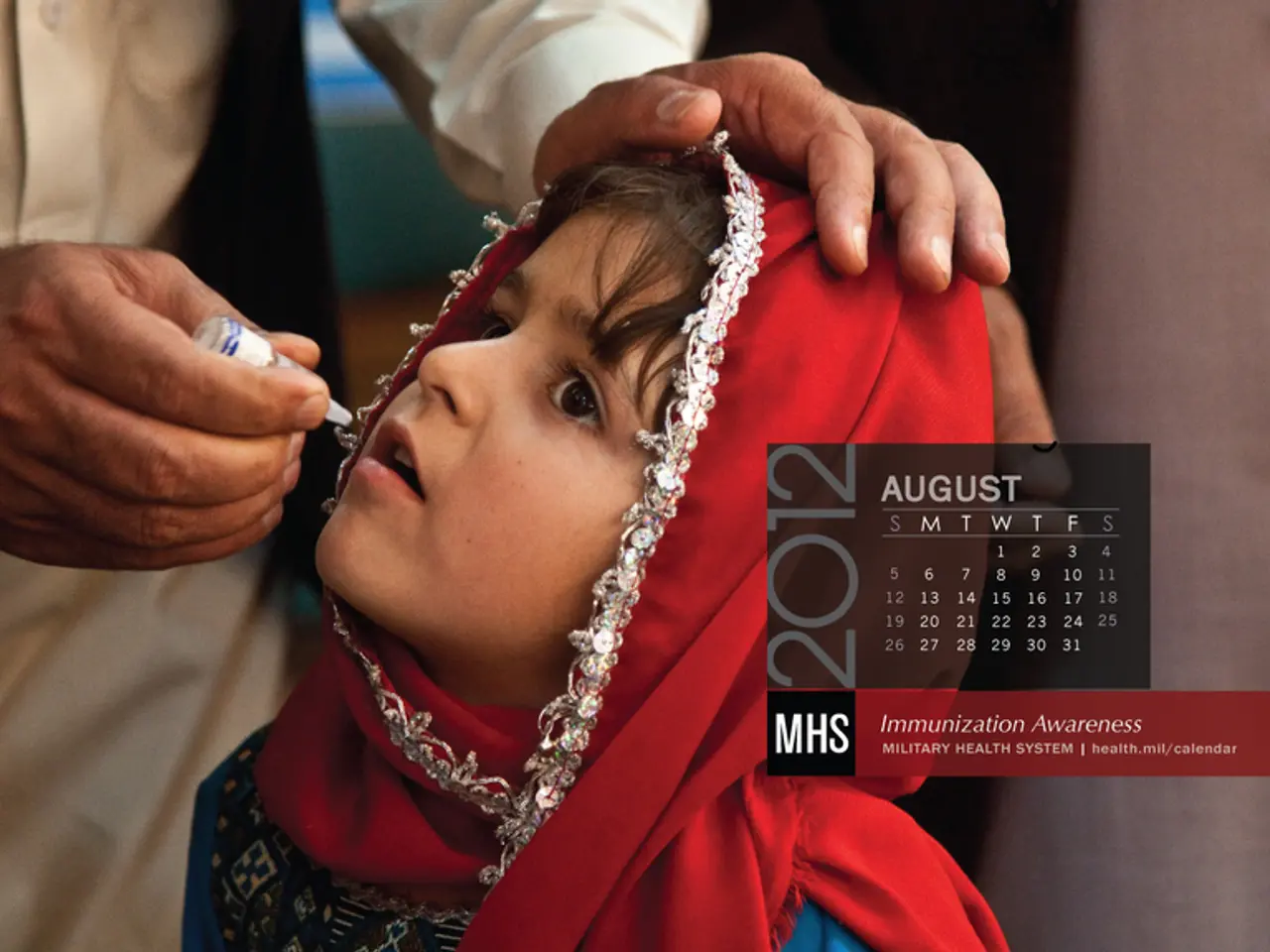Current COVID-19 Guidelines: A Reminder of Precautions to Take
In August 2025, the Centers for Disease Control and Prevention (CDC) has released new guidelines for managing COVID-19, focusing on personal symptom monitoring, targeted vaccination, and continued protective hygiene practices.
Protection
The basic preventive measures remain the same, including good hygiene, covering coughs and sneezes, frequent handwashing or sanitizing, and cleaning frequently touched surfaces. Improving indoor air quality and staying home when sick are also advised to reduce the spread. Wearing masks and maintaining physical distance are recommended, especially for vulnerable groups like older adults, immunocompromised individuals, or those with underlying health conditions.
Quarantine and Isolation
The CDC has ended the mandatory 5-day isolation period after a positive COVID-19 test. Now, if you test positive but are fever-free for at least 24 hours without medication and symptoms are mild and improving, you do not need to isolate and can resume normal activities. However, it is still recommended to keep distance from high-risk individuals for at least 5 more days after symptom onset, even if vaccinated.
Testing
Testing should be done as soon as symptoms appear to confirm infection. Testing helps guide decisions on isolation, treatment, and preventing transmission.
Vaccination
COVID-19 vaccines are strongly recommended for everyone aged 6 months and older. Vaccination reduces the risk of severe illness, hospitalization, death, and long COVID. Updated COVID-19 shots are especially encouraged for those aged 65+, immunocompromised, or with high-risk medical conditions. For adults and children 5 years and older with healthy immune systems, they are considered fully vaccinated if they receive a 2023-2024 formula COVID-19 vaccine, which is either a one-dose vaccination for some brands or a two-series 2023-2024 formula COVID-19 vaccination by Novavax, which should be received two doses between three and eight weeks apart.
People with weakened immune systems should consult their healthcare provider about additional COVID-19 vaccinations, potential contagiousness, benefits of antiviral medication, and additional treatments.
Antiviral Medication
Adults and children 5 years and older who contract COVID-19 are recommended to be treated with antiviral medication, even for mild infection. Antiviral medications like PaxlovidTM and LagevrioTM are the standard first-line antiviral medications for people with COVID-19 infection whose symptoms don't clear up on their own.
Home Remedies and Illness
Some cases of COVID-19 may require treatment, while other times, home remedies can suffice. It is crucial to test for COVID-19 at home when ill, as it can help to reinforce the precautions you should take to limit your interactions with other people.
COVID-19, RSV, and the Flu
The COVID-19 virus is still a part of the respiratory illness mix, along with RSV and the flu. The CDC's guidelines for COVID-19 vaccinations cover several scenarios, as some people will benefit more from additional doses than others.
Immunity and Healthcare Workers
More than 98% of the United States population has some degree of immunity from COVID-19, due to prior infection, vaccination, or both. Healthcare workers can return to work after testing positive for COVID-19 if they meet three criteria: at least 10 days have passed since symptoms first appeared, at least 24 hours have passed since last fever, and symptoms have improved.
General Guidelines
Having the same recommendation for what to do when you get sick with any respiratory illness allows you to follow proper protocol even if you don't know for sure which virus you have. For most people with an average risk of developing complications from COVID-19, they should stay home and avoid contact with others until they are symptom-free for at least 24 hours without taking fever-reducing medications, and continue to take precautions like wearing a mask and limiting unnecessary contact with others for five days.
In summary, the emphasis is on personal symptom monitoring rather than strict isolation, targeted vaccination for high-risk groups, continued protective hygiene practices, and testing when symptomatic to manage COVID-19 risk effectively. Vaccination is the best line of defense against COVID-19, and the COVID-19 vaccine can help keep you out of the hospital. The CDC does not have specific COVID-19 quarantine guidelines or recommendations of how long to isolate if you have COVID-19.
- To maintain optimal health and wellness during the management of medical-conditions like COVID-19, it's crucial to follow science-backed guidelines, such as maintaining good hygiene, wearing masks, and continuing protective hygiene practices that are essential for health-and-wellness.
- In the realm of health-and-wellness, staying updated with vaccinations against medical-conditions, such as COVID-19, is vital for preventing severe illness, hospitalization, and long-term health complications, as supported by the latest findings in science.




